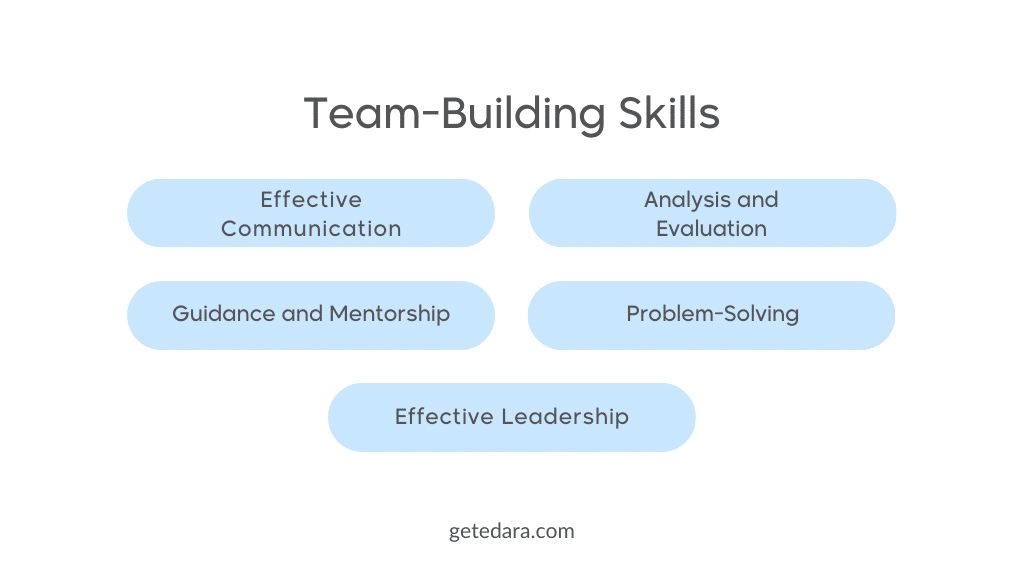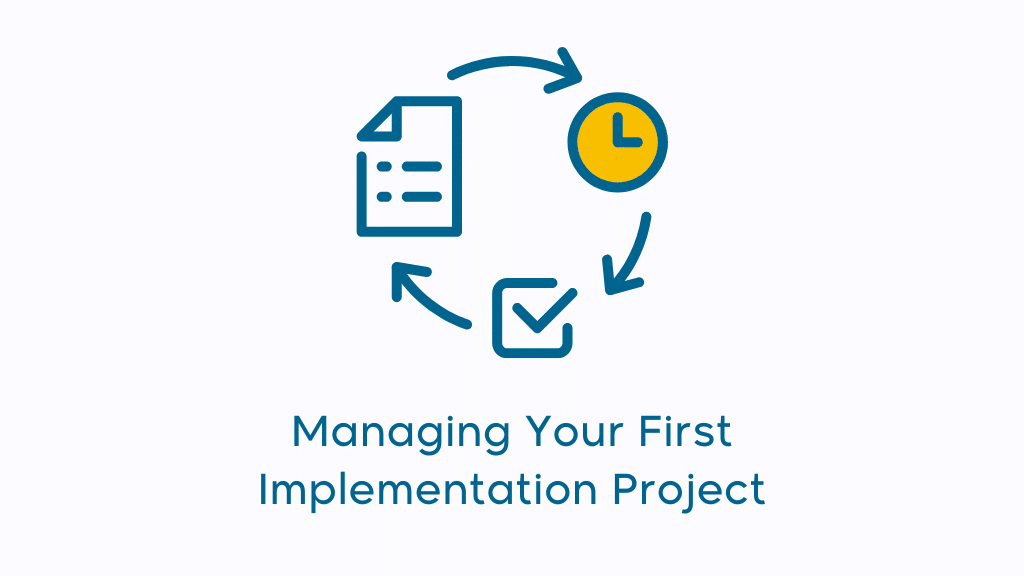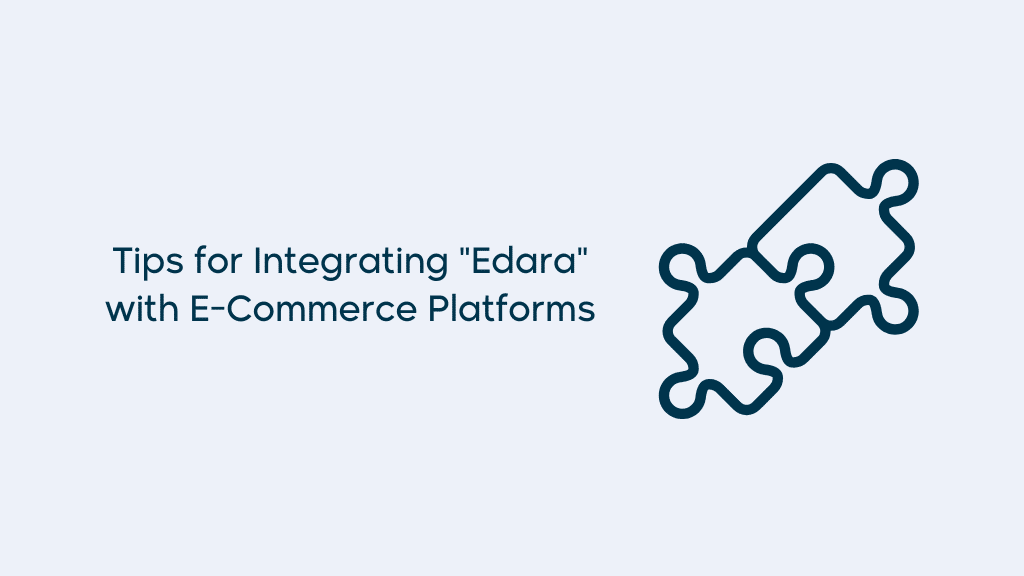Why Edara Partners Should Build a Specialized Team?
6 Reading minutes
Building a high-performing team is essential for Edara partners looking to maximize their impact and deliver exceptional service.
Think of your team as the backbone of your success—each member plays a crucial role in driving your ERP implementation projects to new heights.
By implementing these strategic tips, you can transform your team into a well-coordinated force that not only meets client expectations but also sets new standards in the industry.
Let’s explore the key strategies to build and nurture a team that enhances your practice’s capabilities and ensures outstanding results for your clients.
Why Edara Partners Should Build a Specialized Team?
In the dynamic world of ERP solutions, particularly with Edara, having a specialized team is crucial for achieving excellence and growth. Here’s why building such a team is essential:
Meeting the Diverse Needs of Clients
Build a specialized team to address diverse client needs. For Egyptian SMBs struggling with VAT compliance, adding a team member with tax expertise helps clients navigate complex regulations, ensuring compliance and avoiding penalties—even if your primary focus is general accounting.
Addressing the Constant Need for a Variety of Skills
The accounting field encompasses numerous specialties, such as management accounting, and financial consulting.
A specialized team brings together individuals with different skill sets, allowing you to tackle a broad spectrum of financial challenges.
This diversity in expertise ensures that your practice can handle complex and varied client demands, from intricate tax issues to detailed financial analysis.
Expanding the Scope of Services
Building a team enables you to broaden the range of services you offer. For instance, if you currently provide basic bookkeeping, having a team allows you to expand into areas like strategic financial planning, risk management, or international tax compliance.
This expansion not only attracts a wider client base but also positions your practice as a comprehensive service provider, enhancing your competitive edge.
Achieving Sustainability and Growth
A specialized team contributes to the long-term sustainability and growth of your practice. With more resources and varied expertise, your team can handle a higher volume of clients and more complex projects.
This scalability ensures that your business can grow steadily and remain resilient in the face of market changes, allowing you to explore new business opportunities and increase profitability.
Achieving a Balance Between Technical and Administrative Work
Managing both technical accounting tasks and administrative responsibilities can be overwhelming for a solo practitioner.
By building a team, you can delegate administrative duties, such as client scheduling and document management, to support staff.
This delegation allows you to focus on high-value technical work, ensuring that both technical and administrative aspects of your practice are handled efficiently.
Building a Clear Structure for Providing Services
A well-structured team establishes clear roles and responsibilities, leading to more organized and efficient service delivery.
For example, one team member might handle client consultations, another might manage financial reporting, and a third could focus on compliance issues. This clear structure improves workflow, reduces overlap, and ensures that clients receive consistent and high-quality service.
Team-Building Skills

Team-building skills are among the most critical elements in creating an effective and productive work environment. Forming a successful team requires providing a diverse set of skills that enhance collaboration and positive interaction among team members, including:
Effective Communication
For implementation partners, effective communication forms the foundation of successful team building. This requires clear expression of ideas, active listening skills, and thorough understanding of others’ perspectives—whether communicating in person or electronically.
Professional and inspiring interactions with team members create positive relationships and mutual understanding.
Analysis and Evaluation
Implementation partners must accurately assess team needs and performance by understanding project requirements and goals. By evaluating influential factors like resources and challenges, they can identify strengths and weaknesses within the team.
This analysis enables the development of targeted strategies to improve performance and achieve desired outcomes.
Guidance and Mentorship
Implementation partners must effectively guide their teams toward established goals through strategic priority-setting and skill-based task assignment.
Success depends on providing continuous support and mentorship, offering timely advice, and helping team members overcome challenges they face during task execution.
Problem-Solving
Implementation partners must excel at problem-solving when building successful teams. This requires accurately analyzing situations, identifying root causes of issues during project execution, and developing innovative solutions.
The ability to effectively address challenges is fundamental to team success.
Effective Leadership
The implementation partner’s success hinges on inspiring leadership focused on efficient goal achievement. This requires motivating team members toward excellence while providing essential guidance and support throughout planning and execution phases.
Effective leadership forms the cornerstone of building and maintaining a high-performing team.
Tips for Building an Effective Team
After exploring the key team-building skills you need to establish a successful team, let’s walk you through several essential steps to follow during your team selection journey:
Set Clear and Specific Goals for the Team
Implementation partners must establish clear, specific team goals with defined success metrics from the beginning.
This strategic approach directs team efforts toward desired outcomes while motivating members to work with purpose and commitment.
Carefully Select Team Members Based on Their Skills and Experience
Strategic team selection ensures balanced expertise and enhanced overall effectiveness. Implementation partners should choose individuals with skills aligned to team goals and adaptability to the work environment.
Provide Continuous Training and Development Opportunities
Ongoing professional development helps team members enhance skills and increase efficiency. This investment significantly improves team performance and workplace productivity.
Encourage Collaboration and Interaction Among Team Members
Implementation partners should cultivate a collaborative team culture by creating opportunities for teamwork, welcoming active participation in decisions, and facilitating knowledge exchange.
This collaborative environment leverages diverse perspectives and expertise to enhance project outcomes.
Provide Support and Assistance to Team Members When Needed
Accessibility is essential for implementation partners, who must offer timely support through advice, problem-solving assistance, or connecting team members with appropriate resources.
This responsive approach ensures team members can overcome obstacles efficiently.
Manage Conflicts Constructively and Effectively
Implementation partners must address team conflicts with wisdom and diplomacy, focusing on constructive resolution strategies that satisfy all parties involved.
Effective conflict management transforms potential disruptions into opportunities for team growth.
Maintain a Positive and Motivated Team Spirit
A positive team atmosphere is fundamental to success. Implementation partners should actively foster motivation, build trust between team members, and create an environment that enhances productivity and performance through recognition and engagement.
The Importance of the Head Office for the Implementation Partner

For an implementation partner, having a dedicated office space is more than just a physical location—it’s a foundation for professionalism, credibility, and growth. A well-established headquarters enhances teamwork, builds client trust, and provides a structured environment for success.
Meeting the Team in a Fixed Location
As an implementation partner with a team, having a headquarters provides a dedicated space for meetings and coordination. This enhances teamwork and fosters better collaboration.
A physical headquarters is more than just a workspace; it serves as a hub where team members can communicate directly, exchange ideas effectively, and maintain a strong team spirit. The ability to meet face-to-face ensures smoother workflow management, faster problem resolution, and more organized reporting.
Additionally, having a headquarters reflects your commitment to your work and your investment in creating a professional environment for your team.
Meeting Clients and Building Trust
For many clients, a partner’s credibility is closely linked to having a fixed location they can visit. A dedicated office enhances trust and reassures clients of the legitimacy of your services.
When clients visit your office, they see an organized space, well-managed records, and a professional team. These details significantly influence their decision to continue working with you. An official headquarters demonstrates your reliability and strengthens long-term client relationships.
Providing Client Security and Comfort
Some clients feel more secure when they have the option to visit their accountant’s office. A physical location gives them reassurance and enhances their confidence in your services.
Face-to-face interactions at a dedicated location help strengthen professional bonds and create a sense of stability, making clients more comfortable in their business dealings.
Providing Professional Service
A headquarters reflects your level of professionalism. It shows that you have invested in a structured work environment that aligns with the quality of services you offer.
Having a fixed office demonstrates your seriousness in the industry and helps establish you as a trusted, professional service provider.
Providing a Base for Communication and Expansion
Having a headquarters supports business growth and expansion. If your practice grows, you already have the necessary infrastructure in place to hire additional staff or open new branches.
Your office can serve as a foundation for future business opportunities, allowing you to scale your services efficiently.
Improved Risk Management
A fixed office location enhances risk management by enabling better implementation of security measures. You can equip your office with data protection systems, secure storage for financial records, and cybersecurity solutions.
A well-secured headquarters ensures that sensitive financial information is protected, reducing risks and enhancing the overall safety of your operations.
Conclusion
Building a specialized team is not just about adding resources—it’s about enhancing your capability to deliver outstanding results and adapt to the evolving needs of your clients. By setting clear goals and selecting the right team members, you pave the way for success and growth.
Ready to elevate your practice? Start building your specialized team today and watch your business thrive with “Edara”.
Also Investing in a dedicated office space not only improves workflow but also ensures long-term business stability and reputation in the market.
Related articles
Managing Your First “Edara” Implementation Project
You’re about to take on your first project as an Implementation Partner for Edara. Exciting, right? But let’s be honest—it’s also a little nerve-wracking. That’s completely normal. You’re stepping into…
Implementor’s Tips for Integrating “Edara” with E-Commerce Platforms
Are You Facing Challenges as an “Edara” Implementor? As an implementation partner, ensuring a seamless connection between “Edara” and e-commerce platforms like Shopify and WooCommerce can sometimes be challenging. Issues…
“Edara” vs. Open Source ERP: Which Partnership is Right for You?
As the trend toward self-employment grows—whether as a primary career or an additional income stream—ERPs are paving the way for professionals to embark on independent ventures. The choice between aligning…


